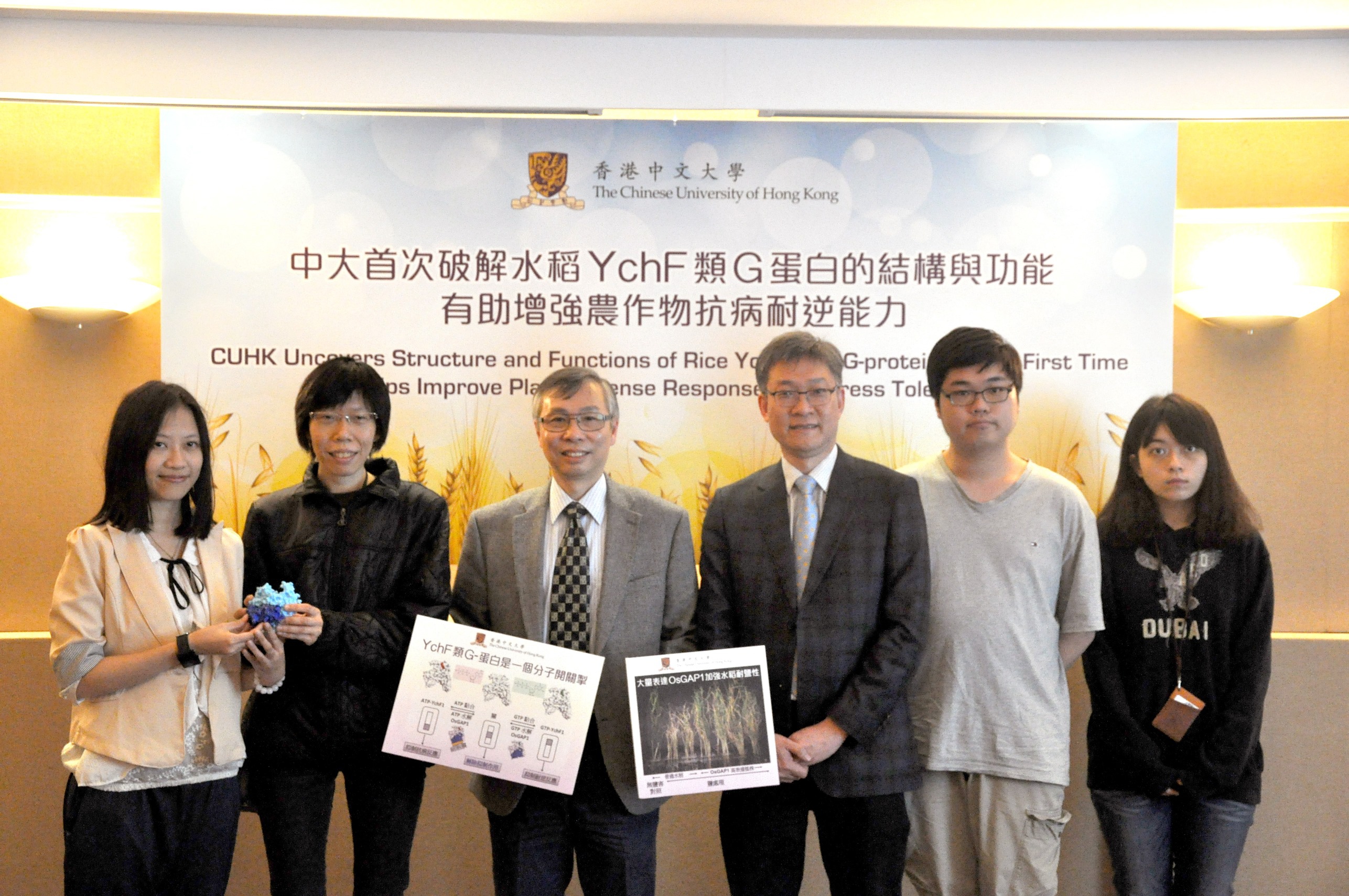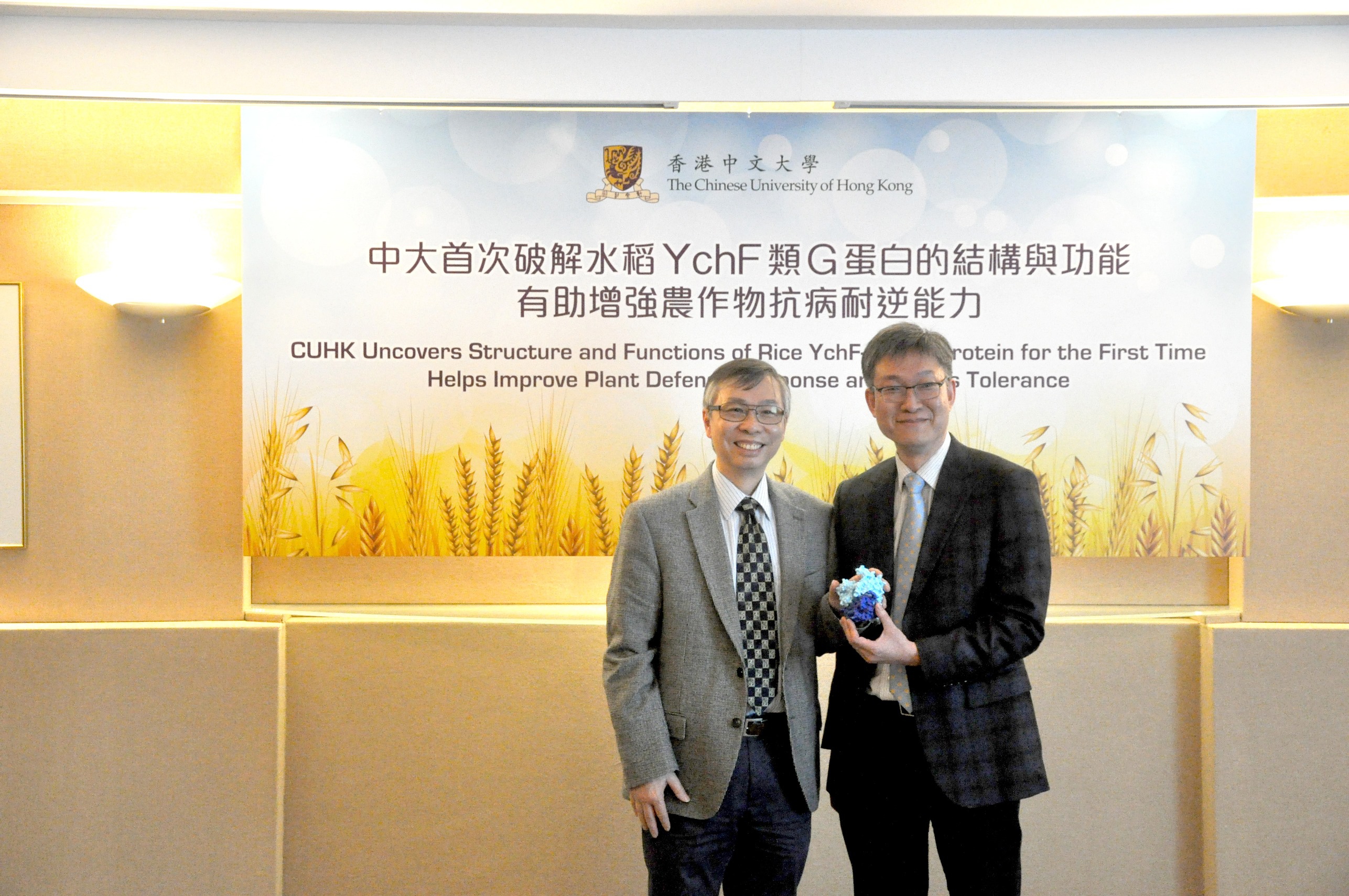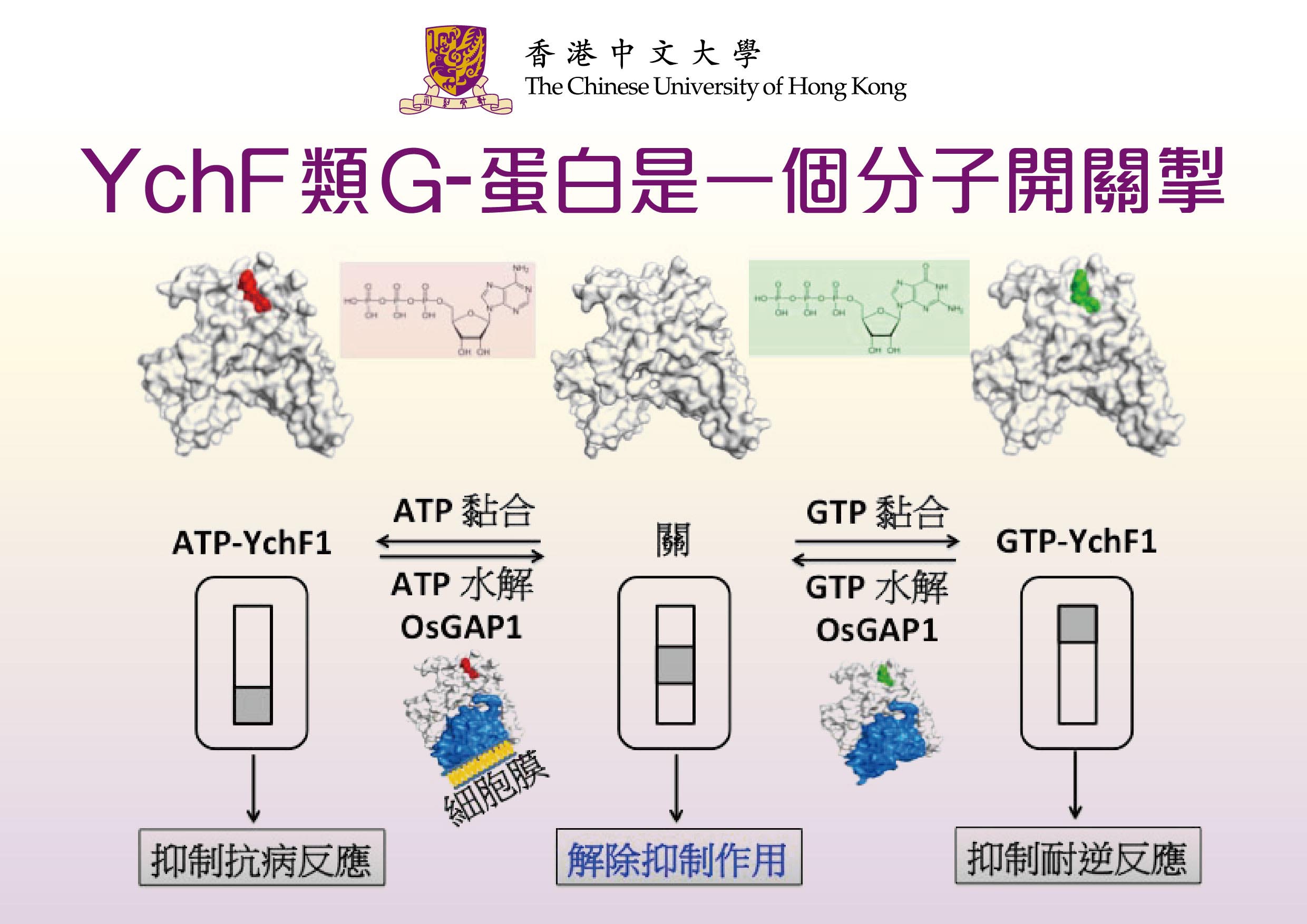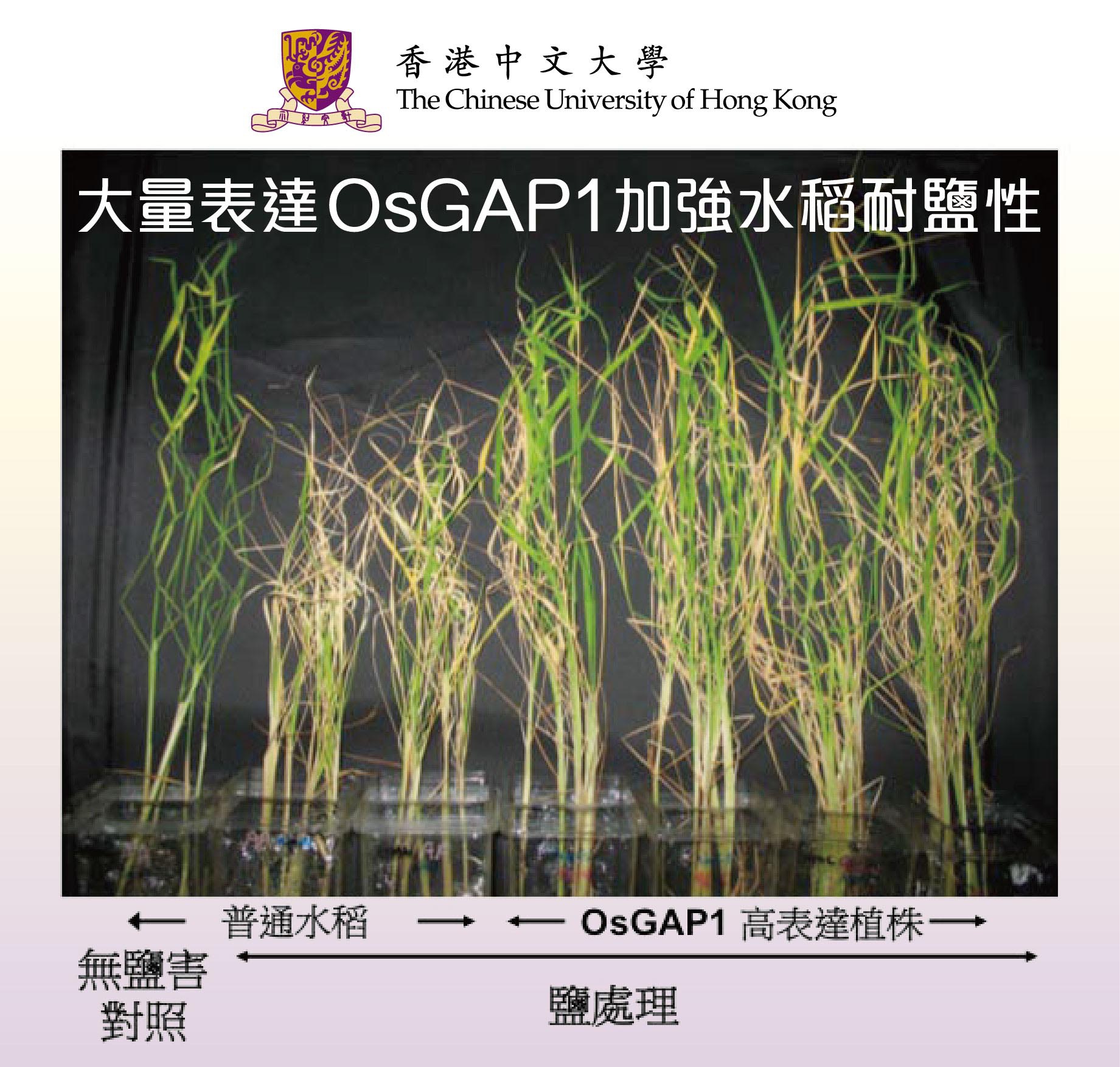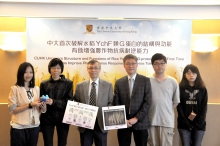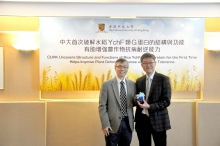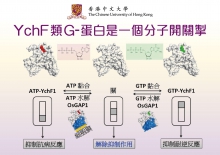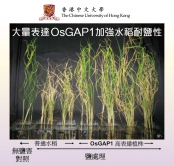CUHK
News Centre
CUHK Prof. Hon-Ming Lam Uncovers Structure and Functions of the Rice YchF-type G Protein for The First TimeNew Findings Help Improve Plants’ Defense Response and Stress Tolerance
Prof. Hon-Ming LAM, Director of the Centre for Soybean Research of the Partner State Key Laboratory of Agrobiotechnology and Professor of the School of Life Sciences at The Chinese University of Hong Kong (CUHK), and his research team have uncovered the structure and functions of Rice YchF-type G-protein, for the first time. The research successfully opens a new page on the scientific researches into plants’ defense response and stress tolerance. The findings were published in Proceedings of the National Academy of Sciences of the USA, a prestigious international scientific journal, in February 2016.
The United Nations estimates that the global population will increase to 9.3 billion by 2050 and that the world will need to double its crop production by 2050 to meet the global food demand. However, crop productivity is threatened by adverse environment and crop diseases. Drought, flooding, salinity and other environmental factors threaten 96.5% of global arable land. The effect of salinity on irrigated cropland costs agriculture US$ 27.3 billion every year and may reduce agricultural production by up to 70%.
Crops have a very sophisticated signaling system to combat diseases and relieve environmental stresses. By using a new technology, Prof. Lam and his research team have uncovered the structure and functions of the Rice YchF-type G Protein. YchF-type G Protein is a family of G Protein and presents in nearly all life forms. Prof. Lam’s latest findings reveal that the Rice YchF-type G Protein restrains plants’ defense response and stress tolerance after binding to adenosine triphosphate (ATP) and guanosine triphosphate (GTP) to avoid the waste of energy in normal circumstances. (ATP and GTP are two main triphosphates which help deliver energy and information.) Therefore, if we understand how to control this type of protein, we can enhance plants’ defense response and stress tolerance. This research can help maintain a higher agricultural productivity under adverse conditions, such as crop disease and salinity.
X-ray crystallography to dissect the structure of the Rice YchF-type G Protein
Being tiny molecules, the structures of proteins are impossible to see directly with the eye, even with the help of powerful microscopes. To fully understand its structure and function, Prof. Lam and his team employ X-ray crystallography and site-directed mutagenesis to dissect the structure of the Rice YchF-type G Protein. X-ray crystallography provides a platform to “observe” such tiny molecules by hitting the crystal of the target protein with X-ray beams. The beams will diffract into different directions when passing through the crystal. The 3D structure of the target protein can be reconstructed by calculating the diffraction of beams. By analyzing the structure of the protein, the researcher confirms that the Rice YchF-type G Protein can bind to ATP and GTP and have different effects on the defense response and stress tolerance of plants.
Strive to enhance agricultural production in future researches
Prof. Lam and his research team discovered the OsGAP1 Protein in their research on rice a few years ago. The OsGAP1 Protein can enhance the hydrolytic activity of ATP and GTP in Rice YchF-type G Protein, thereby eliminating the negative functions in plants’ defense response and stress tolerance. Based on his research achievements over the years, Prof. Lam will continue investigating how to use OsGAP1 Protein to restrain the Rice YchF-type G Protein in order to strengthen plants’ defense response and stress tolerance and ultimately enhance agricultural production.
Prof. Lam said, “Science allows people to see through the surface to understand the deeper part of life and nature. Science is also a spirit to search for answers. Some of these answers could help to improve human life. The research team and I hope the findings can move related researches forward in the future, thereby increasing agricultural production and alleviating the global food shortage problem by the application of basic science.”
Prof. Lam also acknowledged the contribution of the collaborative research team. “The findings demonstrated a strong synergistic effect in the collaboration between the partners in the State Key Laboratory of Agrobiotechnology in China Agricultural University and CUHK. With complementary expertise and a common goal in crop improvement, the collaborating scientists pledge to advance the scientific development in plant and agricultural biotechnology.”
About Prof. Hon-Ming LAM
Prof. Hon-Ming LAM is currently the Professor of the School of Life Sciences, PhD supervisor, Director of the Molecular Biotechnology Programme and Director of the Centre for Soybean Research of the Partner State Key Laboratory of Agrobiotechnology at CUHK. He obtained his BSc and MPhil in biology from CUHK. After receiving his PhD degree in molecular biology from Northwestern University, he worked as a post-doctoral fellow at New York University. He returned to CUHK in 1997.
Prof. Lam is an expert in the studies of gene function. He and his team are working on a large scale soybean genomic project. Through high-throughput genome sequencing on wild and cultivated soybeans, the project aims at learning about the changes in the genome of soybean under artificial human selection. This research has provided important information to soybean research and breeding programmes and identified the salt-tolerance gene. Prof Lam has published extensively in international scientific journals, including Nature, Nature Genetics, Nature Communications, Proceedings National Academy Sciences of USA and Journal of Biological Chemistry.
About the State Key Laboratory of Agrobiotechnology, Partner Laboratory in The Chinese University of Hong Kong
The State Key Laboratory of Agrobiotechnology and Partner Laboratory have been established by The Ministry of Science and Technology through a collaboration between CUHK and China Agricultural University. The research teams of both leading universities in agrobiotechnology work together to alleviate the pressure of global food demand by increasing the quality and quantity of agricultural production, as well as improving the defense response and stress tolerance in plants.
Professor Kam-Bo WONG, Director, School of Life Sciences, CUHK (3rd right), Professor Lam (4th right) and his research team.


